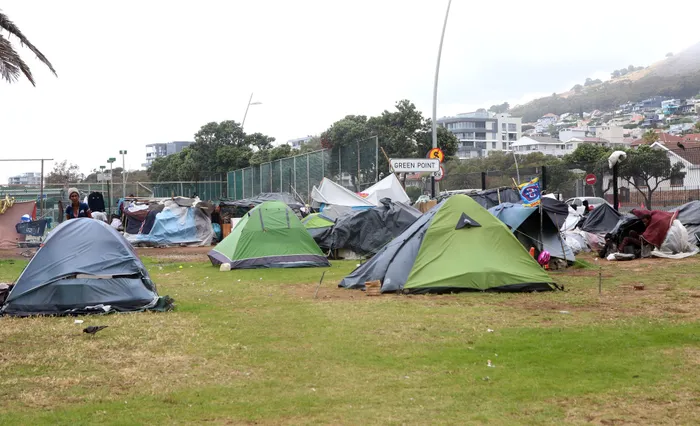
Homeless people living in Cape Town Homelessness is a problem that affects many South Africans. Photo: Brendan Magaar/African News Agency (ANA)
Image: Brendan Magaar/African News Agency (ANA)
Breaking the cycle of homelessness requires more than just temporary shelter — it demands a holistic, sustained approach that addresses addiction, employment, and housing stability.
In South Africa, where homelessness is a growing concern, non-profit organisations like U-turn and New Hope SA are proving that transformation is possible through structured, long-term support.
IOL spoke to NPOs U-turn and New Hope SA to get a better understanding at what success stories look like as they help homeless South Africans off the street.
For both organisations, it was about making sure that individuals were able to stand on their own two feet before they graduated from the programmes.
Get your news on the go, click here to join the IOL News WhatsApp channel.
“All our clients graduate sober, employed and housed,” states U-turn’s Stephen Underwood. “If they haven’t found a job, they don’t graduate. If they haven’t found housing, they don’t graduate. We keep them in the programme until they’ve achieved those outcomes.
“It’s not time-based. It’s not like you’ve got one year to do it, if you don’t, ‘bad luck’. Some fly through in nine months, some take three years. We walk them through the journey for as long as it takes; until they are employed and housed, and they must obviously remain sober.
“All of our graduates complete the programme sober, employed and housed. We follow up long term, and over 80% maintain those outcomes, which is the challenge in homelessness. It’s about helping people long term without them slipping back into substance abuse of homelessness.”
According to New Hope SA’s Dylan Groep, they took a different approach in defining a success story.
“Success could be slightly different for each individual. For some people. It might be reintegrating with their family. They might not have found permanent work yet, but they are reintegrating with their family. For some, that’s not possible because that could be a trigger or a trauma situation,” says Groep.
“One of our most recent success stories is Samuel. He started out with us two years ago. When he was in the programme, he had a massive accident and we didn’t know if he was going to make it. He recovered and had a big turning point in his life. He went through the programme and took a good look at himself, put in a lot of work and eventually became one of our programme supervisors. That was cool because he understood where the guys come from and what it means to be on the recovery and healing journey. He’s currently working on a cruise ship and he's now up in Northern Europe.”
Another of their former clients is married with children, and also works in assisting the homeless.
But, while they have success stories, some cases don’t work out for the best.
“There are guys who leave the programme, or just change their cellphone numbers.”
“There are good stories. But inbetween, there are a lot of difficult stories that provide learnings for us as an organisation. But, when looking at the success rates, there are more people who don’t finish the programme than those who do. But, we believe that if we make a difference in one person’s life, you impact the family and the community that persons comes from, so we believe in that.”
IOL
Get your news on the go, click here to join the IOL News WhatsApp channel.
Related Topics:
